Integrate Postman with liblab
Supported SDK languages:
| TypeScript / Javascript | Java / Kotlin | Python | C# | Go | PHP |
|---|---|---|---|---|---|
| ✅ | ✅ | ✅ | ❌ | ❌ | ❌ |
Overview
This guide is still under development and will be updated once finalized.
This guide explains how to activate and use the liblab integration within the Postman web and desktop apps. Workspace admins can connect liblab, and all users from that workspace can generate SDKs directly from collections.
Activation Process
First install liblab into your Postman workspace by navigating to your Postman workspace, in the upper right corner press on Team > Manage Team. Then you will be presented with the screen:
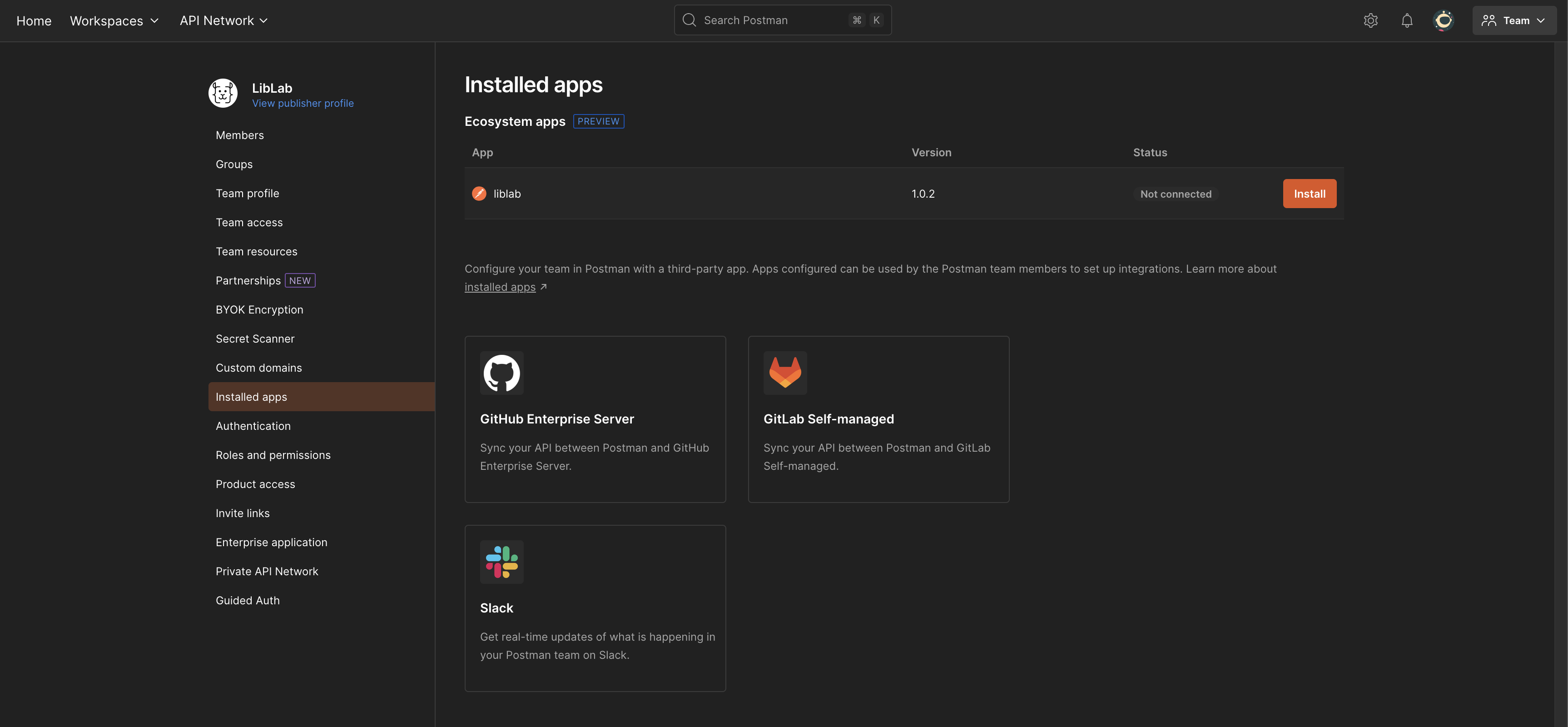
There, on the left sidebar, select 'Installed apps' and from the app list press on 'Install' button next to 'liblab'.
You will be presented with a consent screen where you need to give permissions to liblab to access your Postman team's data:
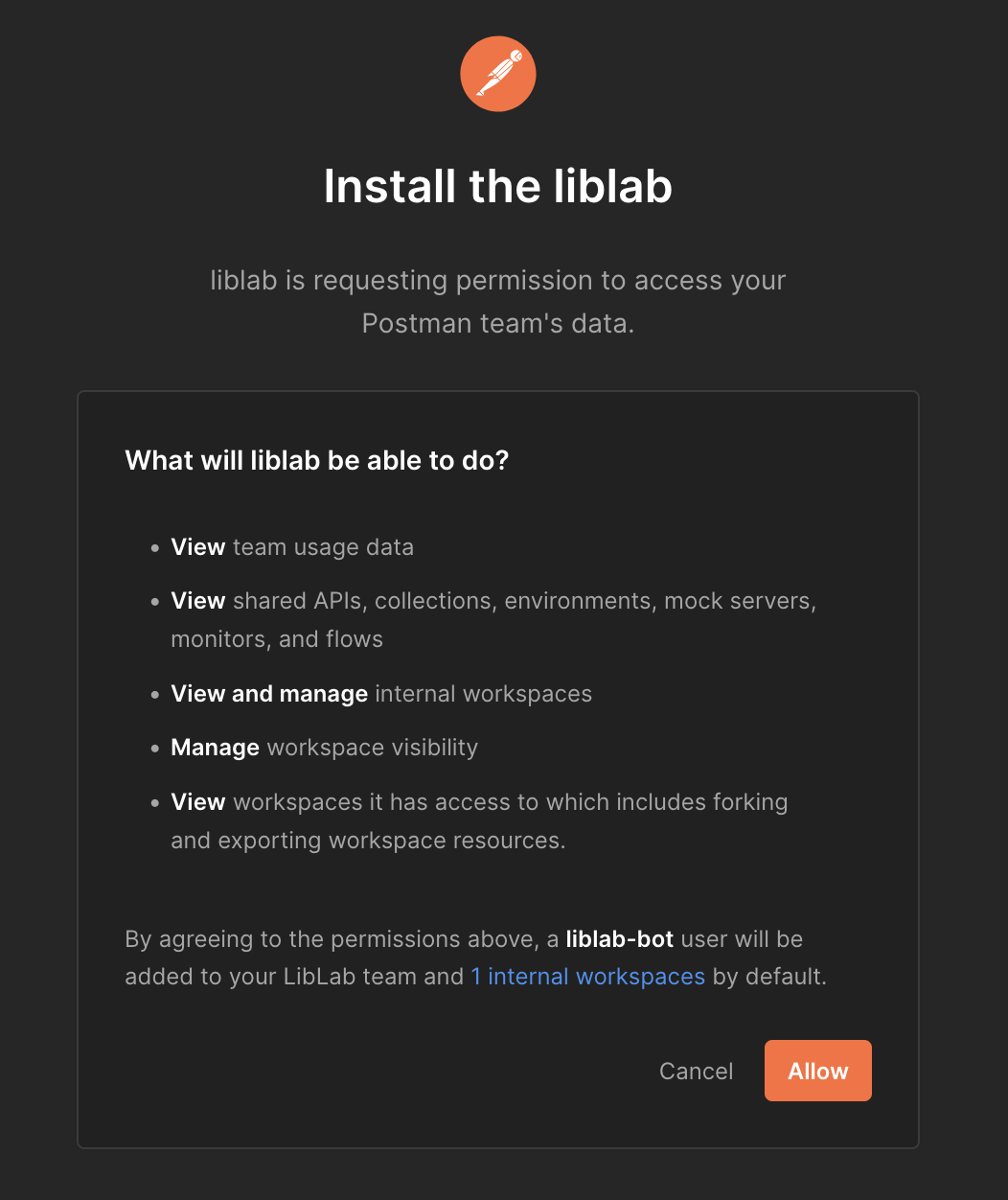
A new browser tab will open pointing to the liblab signup/login screen. You can signup for a liblab account from this screen or login if you already have one.
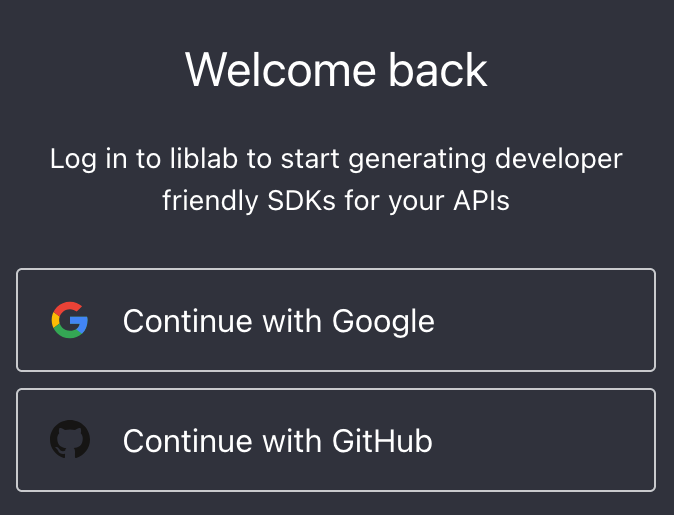
If the new tab is not opened, you can open it manually and access this directly: https://app.liblab.com/org-admin/integrations/postman
Generate API Token
Generated API tokens are only shown once for security purposes. Please save them securely if you need to.
Once logged in you'll be prompted to generate an API token. Click on "Generate New API Token".
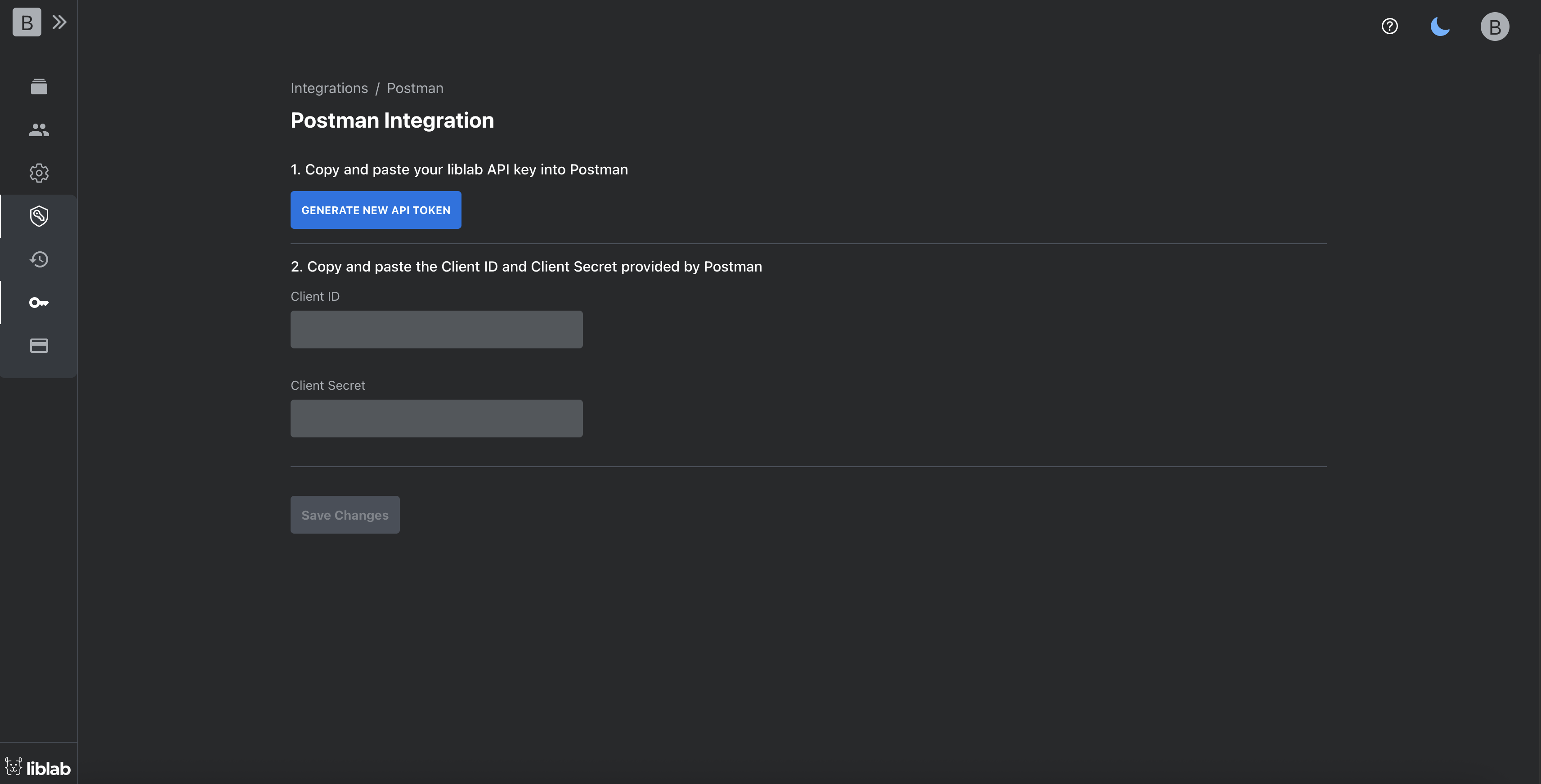
Once generated you'll see the API token that you will need to copy and paste into Postman.

Exchange Credentials
Copy and paste your liblab API token into Postman:
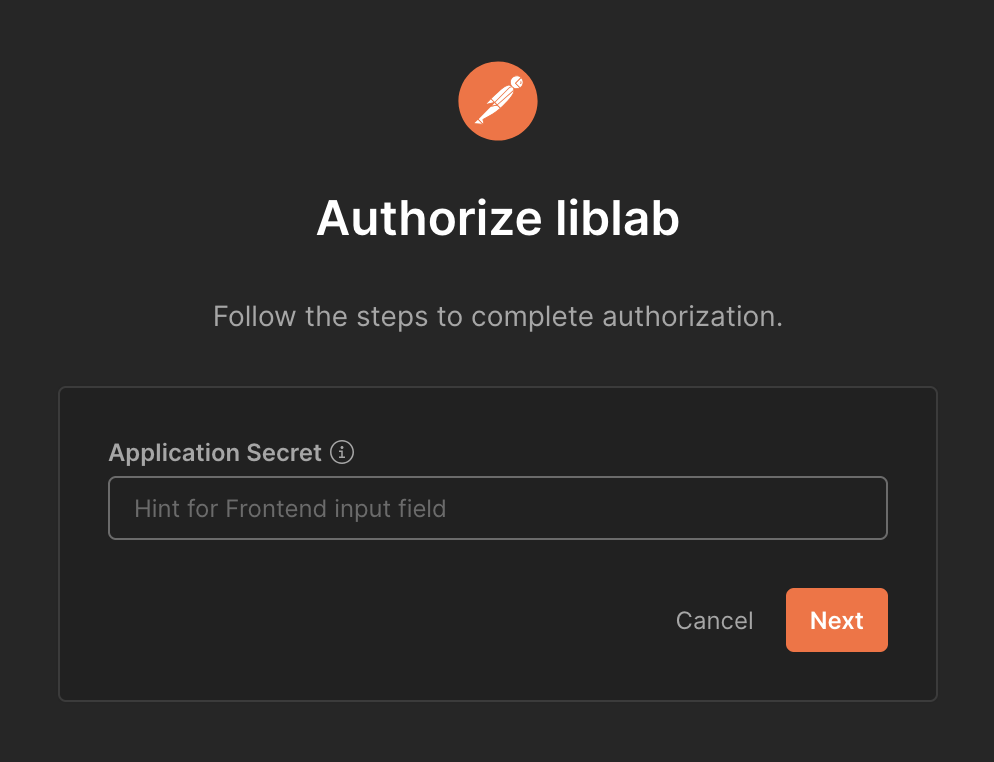
After providing your liblab API token to Postman the screen will display a Client ID and Client Secret.
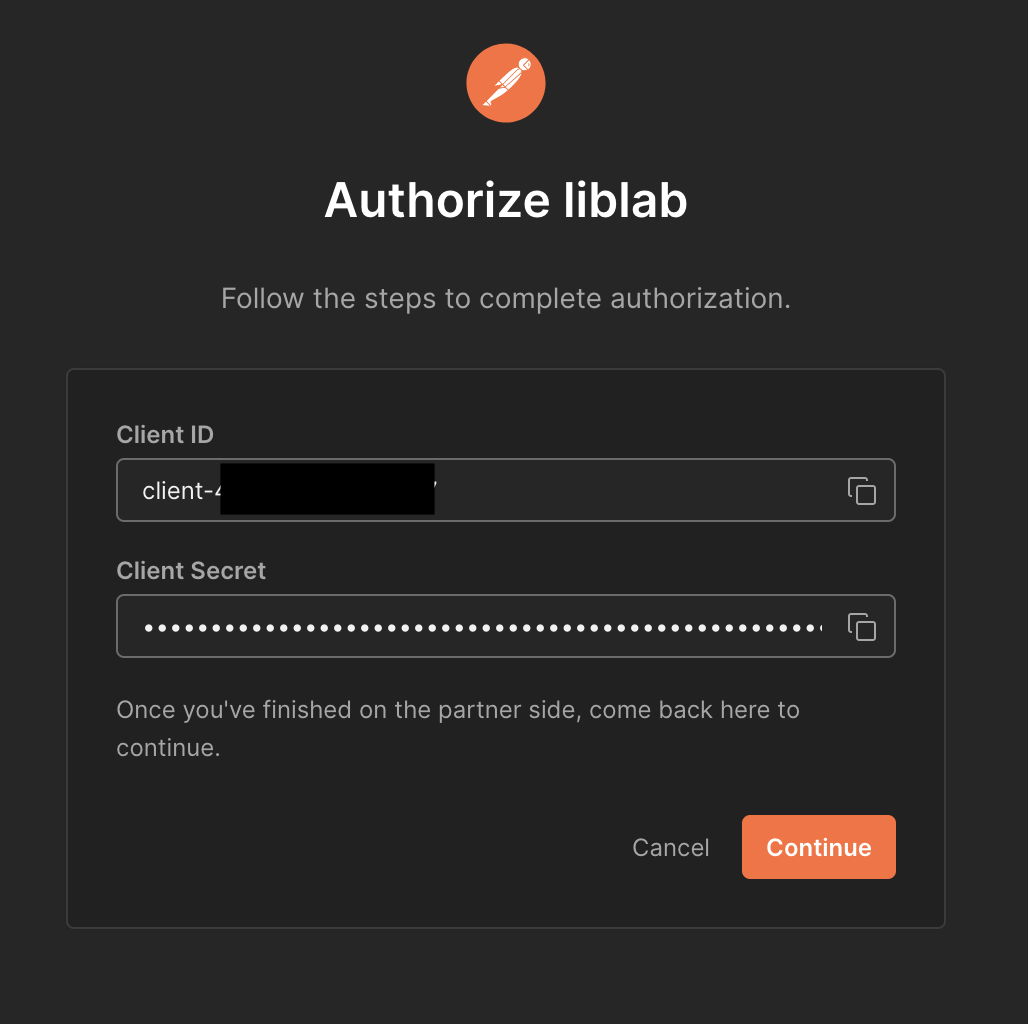
Copy and paste the Client ID and Client Secret into liblab:
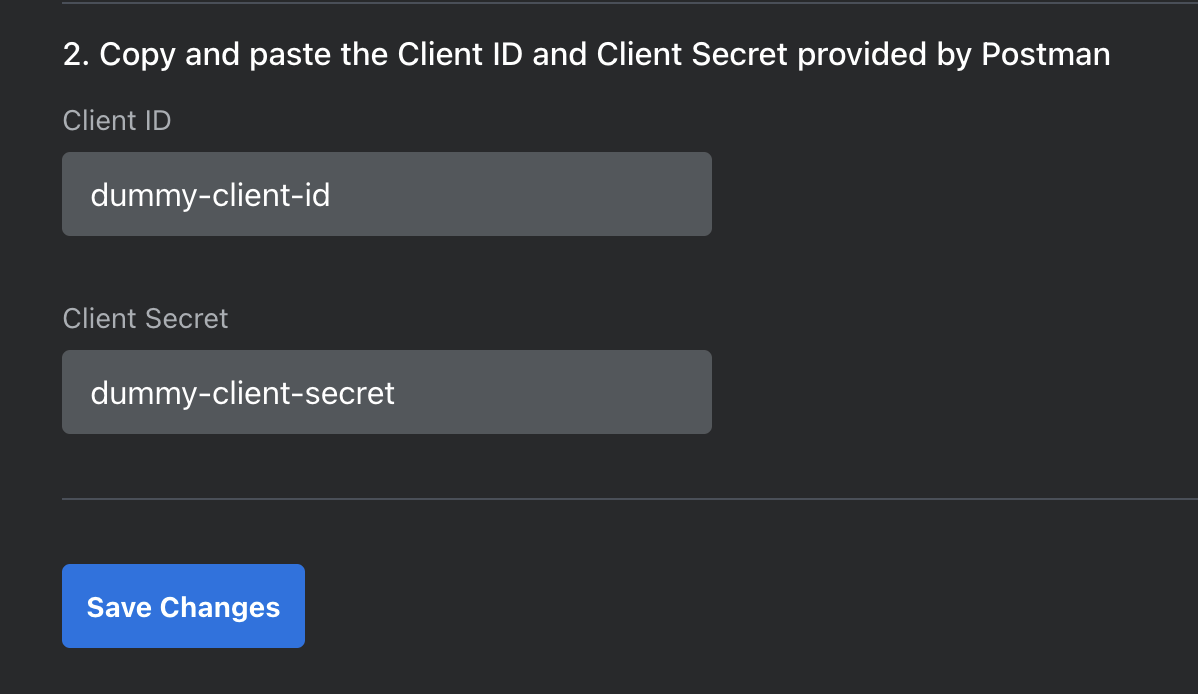
Click Save Changes. If credentials worked, you will see a message saying 'Your Postman integration has been successfully configured. No further action is required unless changes to the settings are necessary.'
If there is an error, you will see a message saying 'Your Postman integration credentials have been saved, but the connection could not be verified. Please check your Client ID and Client Secret and try again.'
Only if you get a successful message on the liblab site, go back to Postman, click continue and you should see app installed successfully message:
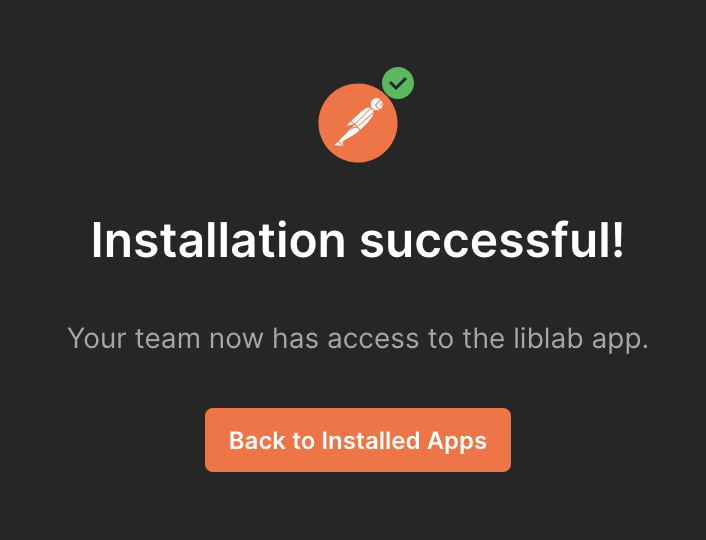
Once connected, all users in the workspace can access liblab integration.
Generate your SDKs
You can generate your SDK via the 3-dot menu next to a collection. Click the ••• (3-dot menu) next to a collection and choose Generate SDKs
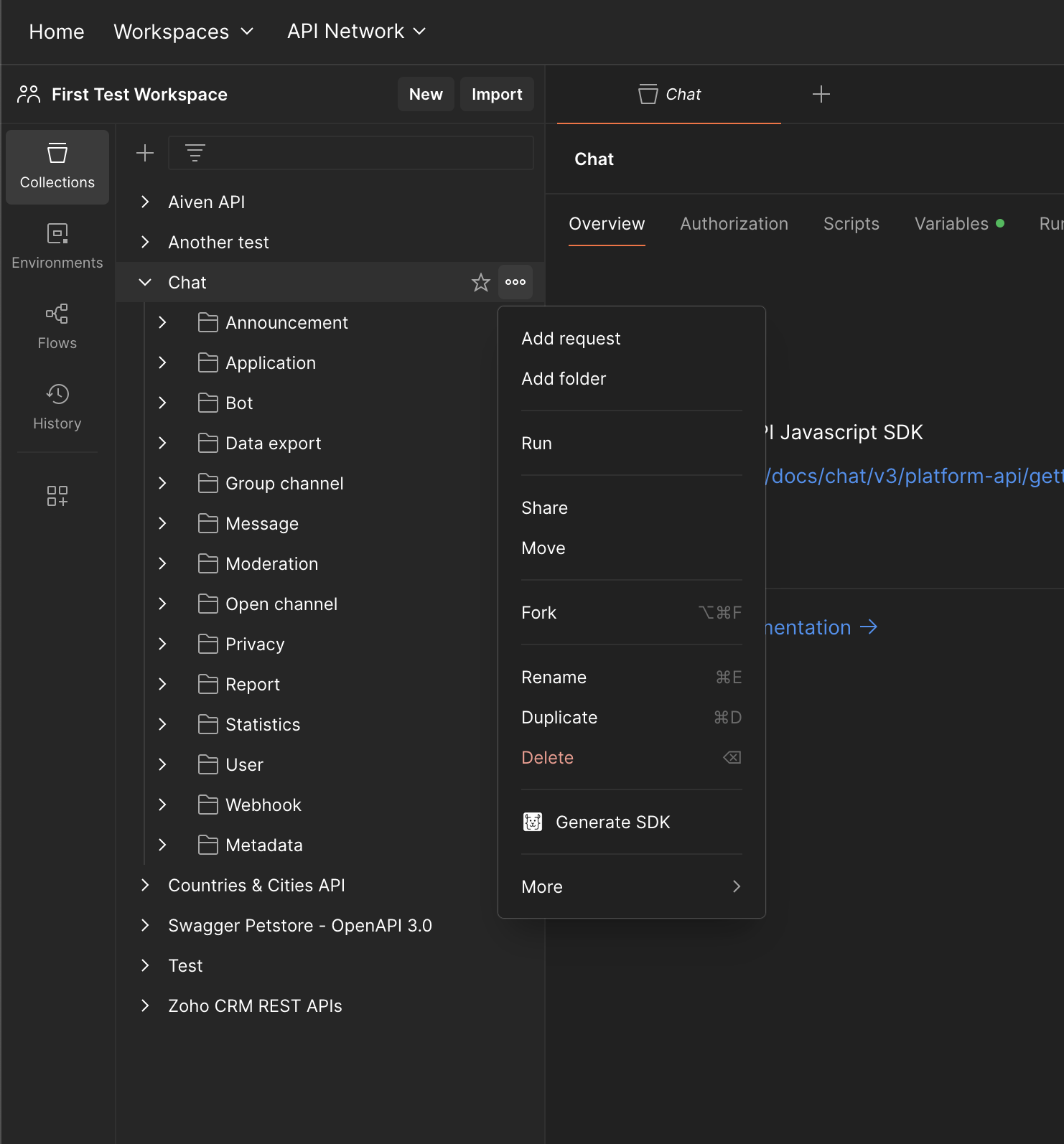
Alternatively you can generate an SDK from the liblab app by clicking a collection, selecting the Overview tab, going to Connected Apps, and choosing liblab.
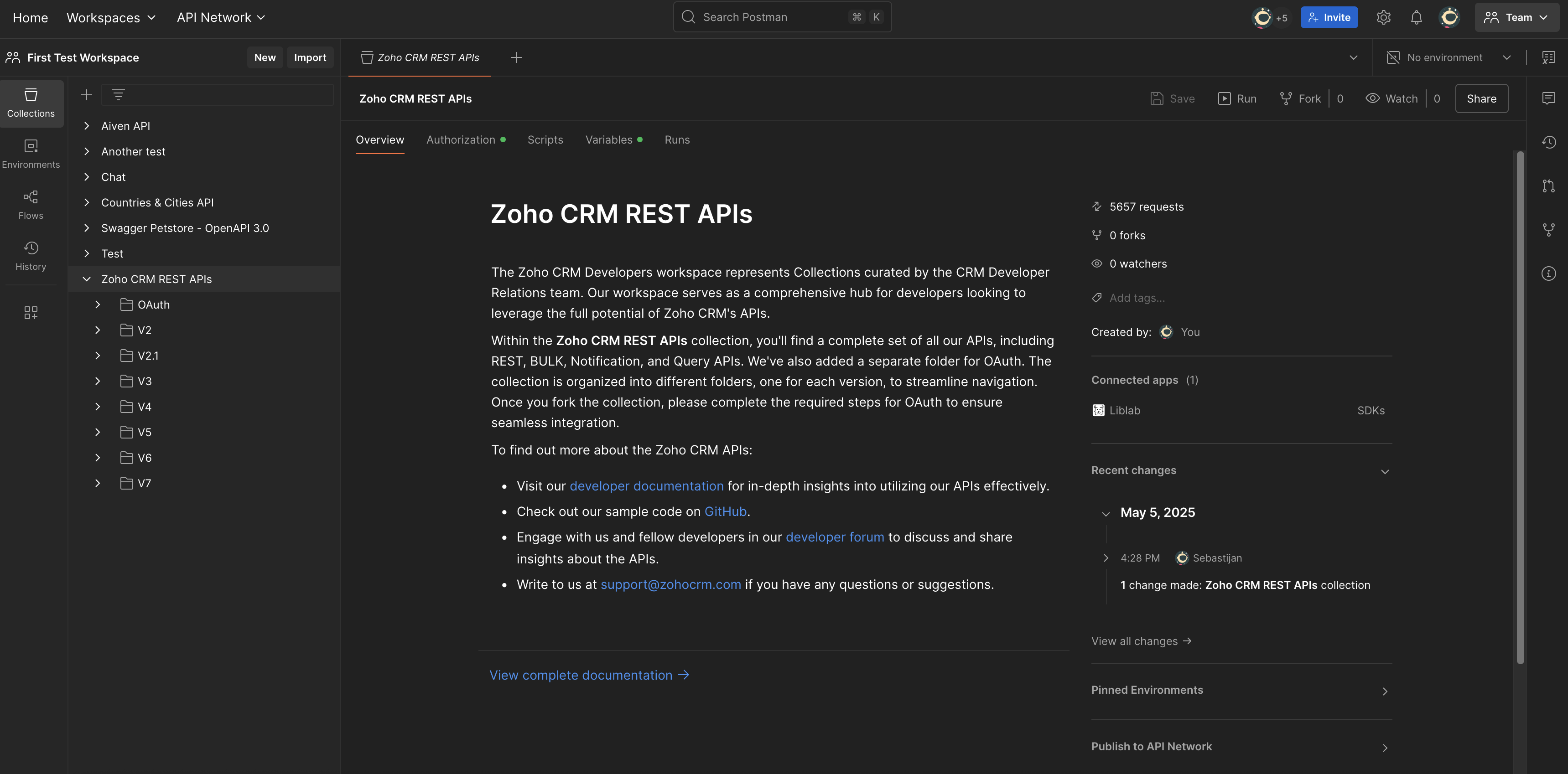
On the next screen you'll be able to click Generate SDKs.
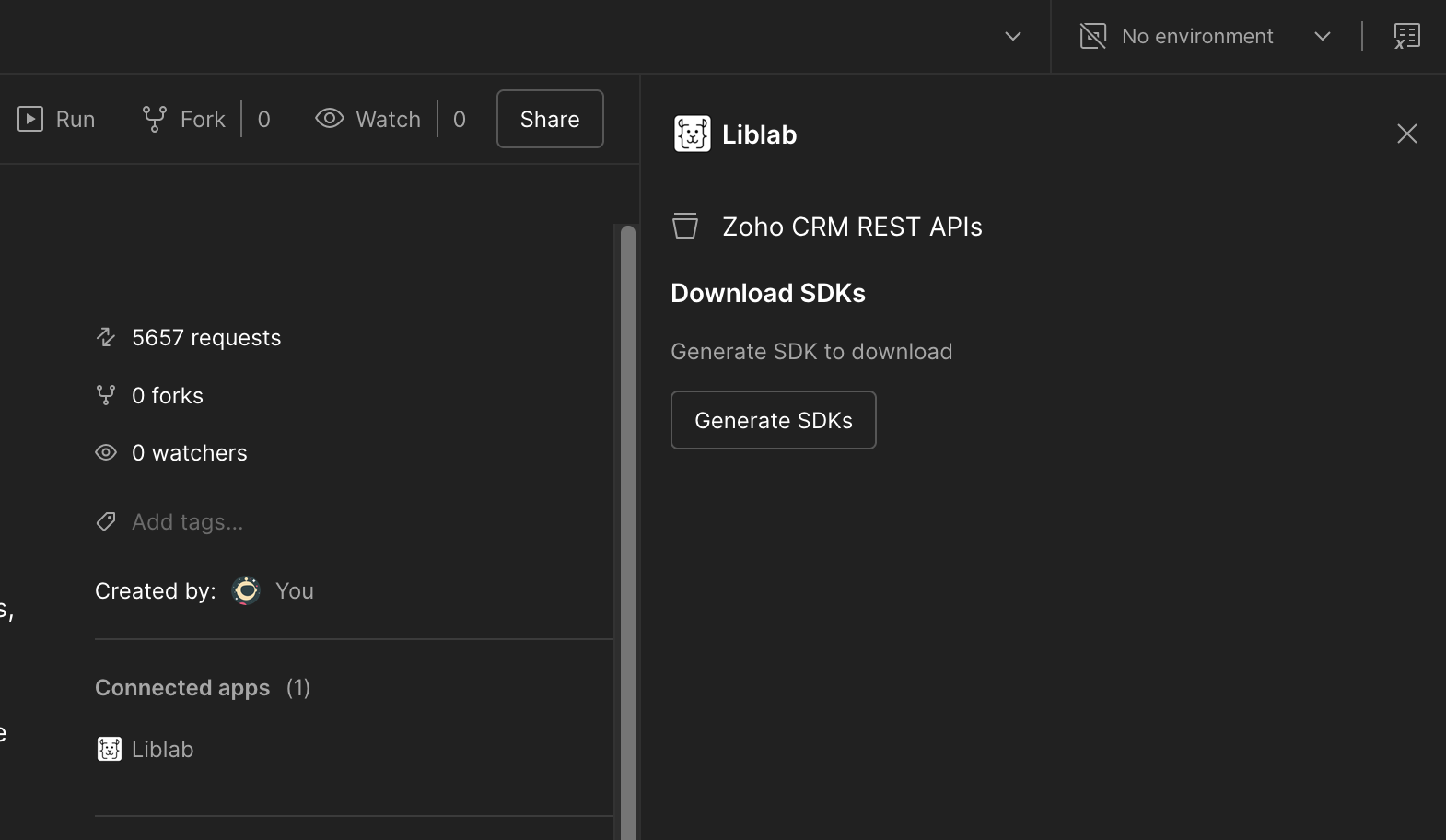
If the SDK already exists you can regenerate the SDK by clicking on the Regenerate SDKs button.
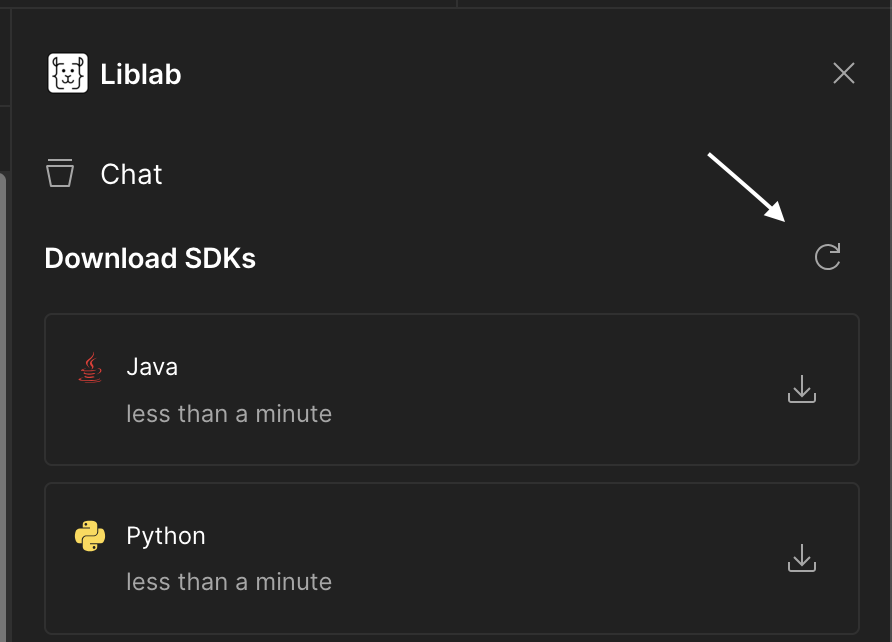
SDK Details
The first time you create an SDK for a collection you'll be prompted to provide details on the SDK including a name for the SDK and which target languages you want to produce SDKs for.
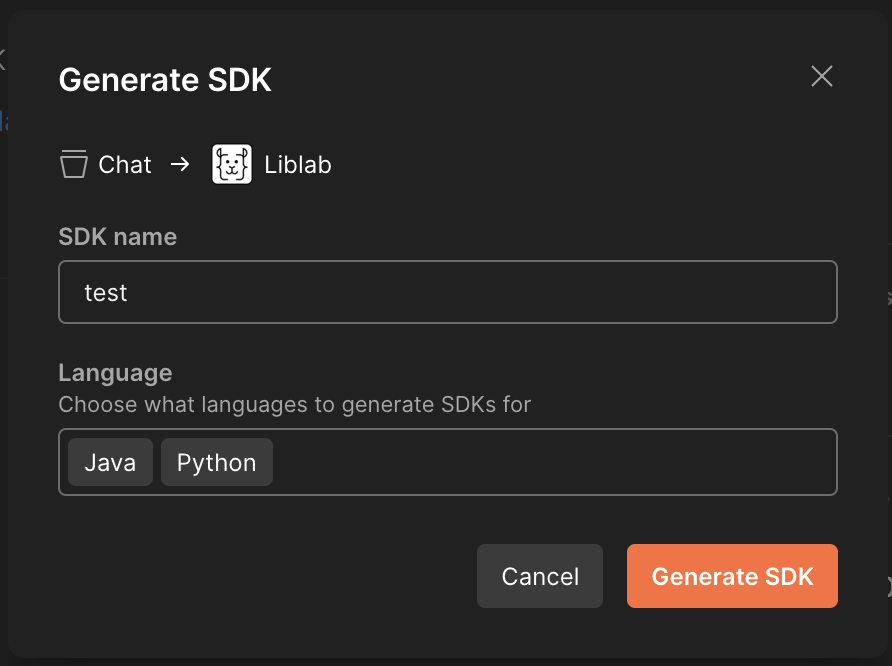
Build Results
Once SDKs are generated you'll see a list of them and can choose to download them.
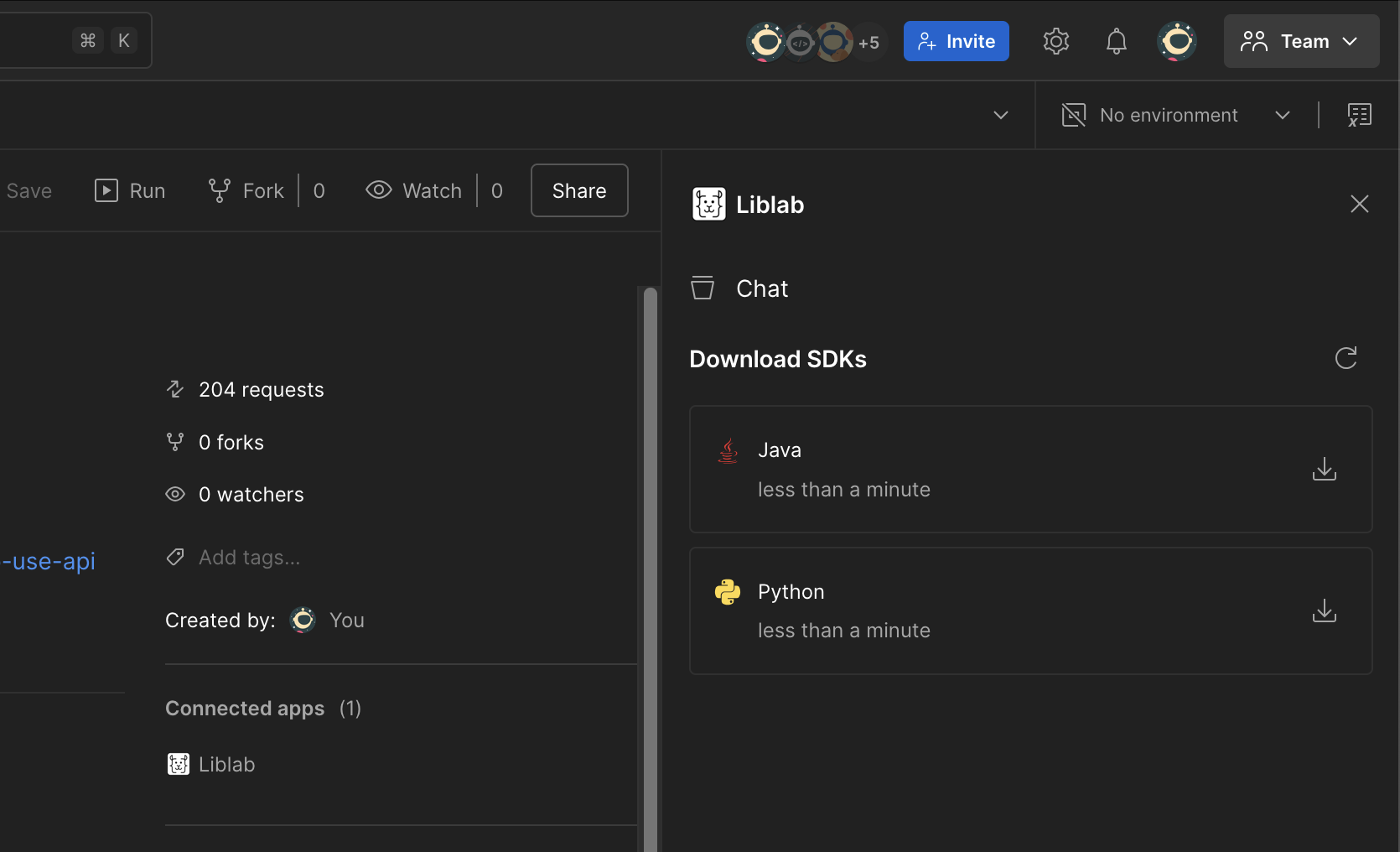
Only the latest SDK build per collection is saved - versioning is not yet supported.
Viewing SDKs in liblab
You can also view your SDKs from your liblab dashboard. All SDKs generated through the Postman integration can also be viewed in the liblab dashboard.
These SDKs are associated with a special system user named postman-service-worker, which is automatically created when the liblab API token is generated for Postman.
